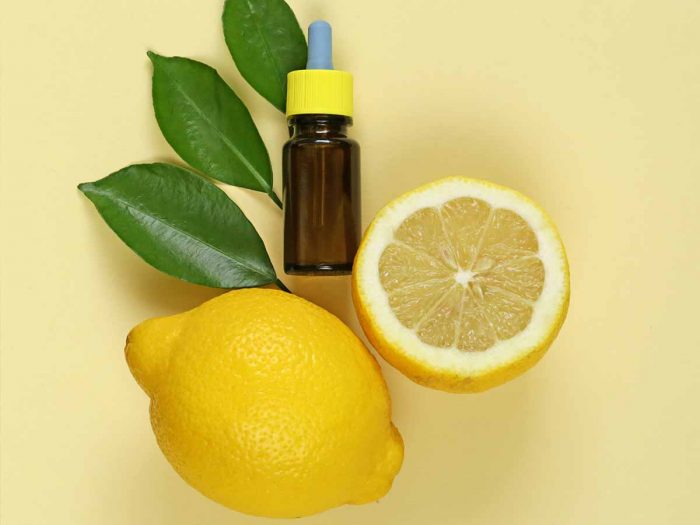If you haven’t incorporated lemon extract into your kitchen in some way, you are missing out on a delicious and potentially beneficial ingredient for your overall health.
What is Lemon Extract?
Lemon extract is primarily a flavoring agent that is made by soaking a lemon peel in some form of alcohol, typically ethyl alcohol, although vodka and other types of alcohol can also be used. This process allows the natural oils of the fruit to bind with the alcohol, resulting in the alcohol taking on the flavor of lemon, without absorbing all of the citric acid and other components of lemons. Alcohol, in this case, functions as a binding agent that holds the flavor in place over time, whereas normal fruit juice or the peels themselves would eventually lose this quality. The extract is commonly used in baking applications and other flavoring uses in the kitchen, as well as for some natural health remedies. [1]
Lemon Extract Uses
Lemon extract can help to cure acne, boost the immune system, cut down on stress, and act as an anticancer agent, among others.
Acne
Apply a small, diluted amount of this extract on acne patches can speed healing, reduce redness, and tackle the underlying bacterial issues causing the inflammation. [2]

Lemon extract is a flavoring agent that’s made by soaking lemon peel in ethyl alcohol. Photo Credit: Shutterstock
Immune System
This extract is known to slow the spread of microbial and bacterial growth, making it a booster for your immune system’s defenses. [3]
Anticancer Potential
Peels of citrus fruits, including lemons, are a source of flavonoids. These are compounds which offer a range of biological activities. According to a study published in the Biomed Research International [4] journal, these extracts could also have anticarcinogenic effects.
Stress
The aroma of this extract is known to impact stress hormone levels in the body and reduce anxiety when used in aromatherapy applications. [5]
Canker Sores
Mixing a small amount of this extract with warm water and gargling with it can help eliminate canker sores very quickly, due to its astringent properties.
Difference Between Lemon Essence & Lemon Extract
As mentioned earlier, this extract is made by extracting the essential oils and flavor from lemon peels. Lemon essence, on the other hand, is either an imitation extract, flavored like lemon through the use of certain chemicals, or it is a highly concentrated form of lemon extract – often 3-4 times more powerful than a traditional extract.
How to Make Lemon Extract With & Without Alcohol?
There are two main ways to make lemon extract – with and without alcohol. Most extracts, by definition, are made by soaking the desired material (in this case, lemon peel) in alcohol, but that isn’t the only option.

How to Make Lemon Extract with Alcohol: Easy Recipe
Instructions
- To make lemon extract with alcohol, first, thoroughly wash and dry the lemons.
- Thereafter, remove the peels from 2-3 lemons and add to a small mason jar.
- Cover the peels with vodka and seal tightly.
- Allow this extract to sit for 3-4 weeks before removing the peels.
How To Make Lemon Extract Without Alcohol
- To make lemon extract without alcohol, remove the peels from 2-3 lemons and add them to a small mason jar.
- Cover the peels with a mixture of 3 parts food-grade glycerin and 1 part water.
- Allow the extracts to sit for at least 2 months before using it.
- These extracts don’t need to be refrigerated and should last for up to 5 years!

Notes
Connect With Us
If you have tried this recipe, we would love your feedback in the comments section below. And while we can’t taste it, we would love to see how it turned out! You can connect with us on Facebook or Instagram and tag your picture with #organicfactsrecipes. [6] [7]
Do you wish to share your winning recipes with us? Please click here and fill in the details to get started.
